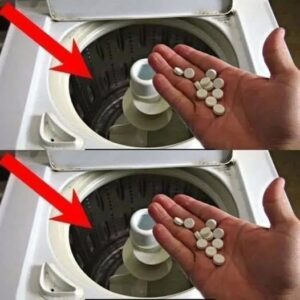Cold sores, also known as fever blisters, are far more common than most people realize—and they’re not just a cosmetic nuisance. Caused primarily by the herpes simplex virus type 1 (HSV-1), and in some cases HSV-2 through oral-genital transmission, these small lesions can tell us a lot about the body’s overall health. While they typically heal on their own within 7 to 10 days, the virus remains in the body for life, lying dormant until triggered again.
The contagious nature of cold sores is one of the biggest reasons doctors emphasize caution. They spread easily through direct contact such as kissing, but also indirectly through shared items like utensils, towels, razors, or lip balm. Even touching an active sore and then placing your hand on another part of your body can transfer the virus, which is why outbreaks can sometimes spread to the nose, cheeks, or even eyes.
A typical outbreak follows a predictable cycle. Many people first notice a tingling, itching, or burning sensation around the lips a day or two before anything becomes visible. This is the virus beginning to reactivate. Soon after, clusters of small fluid-filled blisters appear. These blisters eventually rupture, leaving shallow open sores that can be painful and sensitive. Finally, the sores crust over and form scabs before healing completely. Although the outward signs fade, the virus settles back into nerve cells, waiting for another chance to resurface.
What triggers this reactivation varies from person to person. Common culprits include physical and emotional stress, fatigue, prolonged sun exposure, hormonal fluctuations, illness, and a weakened immune system. For some, even a common cold can be enough to spark an outbreak. The unpredictable nature of the virus makes it especially frustrating, since one person might go years without an outbreak while another experiences flare-ups multiple times a year.
There is currently no cure for HSV-1 or HSV-2, but treatment can reduce both the severity and duration of symptoms. Doctors often prescribe antiviral medications like acyclovir, valacyclovir, or famciclovir. These drugs, when taken at the first sign of tingling, can shorten the healing process and sometimes prevent sores from fully developing. Over-the-counter topical creams and ointments can provide temporary relief from itching or burning, while simple pain relievers such as ibuprofen or acetaminophen may ease overall discomfort. Moisturizing balms and protective lip sunscreen also help by preventing cracking and protecting sensitive skin from further irritation.
Equally important is prevention. Avoiding close contact during outbreaks is essential to stop the spread, especially kissing or sharing personal items. Using sunscreen lip balm outdoors can prevent UV-triggered flare-ups, while a healthy lifestyle—balanced diet, regular sleep, exercise, and effective stress management—helps strengthen the immune system and reduce recurrence.
But cold sores aren’t just a short-term annoyance. Recent scientific studies have uncovered a startling link between oral health, viral infections, and long-term cognitive decline. Research has suggested that the bacteria responsible for gum disease, Porphyromonas gingivalis, may play a role in the development of Alzheimer’s disease. Scientists found that toxic enzymes called gingipains, produced by this bacteria, were present in the brains of patients with Alzheimer’s as well as individuals who had Alzheimer’s-related changes but had not yet shown symptoms.
This discovery has shifted how researchers view the relationship between oral infections and brain health. Rather than assuming dementia patients develop poor oral hygiene habits as a result of cognitive decline, evidence now suggests the opposite: infections and inflammation in the mouth may actually contribute to brain changes years before memory loss appears.
In mouse studies, researchers tested a compound called COR388, designed to block the effects of gingipains. The results showed promise—reduced inflammation in the brain and a decrease in harmful protein buildup associated with Alzheimer’s. While these findings are still far from becoming an approved human treatment, they represent a critical step toward understanding how oral health can influence neurological disease.
The implications are significant. For more than 15 years, there have been no new therapies approved for dementia that effectively slow or reverse progression. Exploring connections between everyday infections, like gum disease or viral outbreaks, and long-term cognitive decline may open new doors for prevention and treatment.
For now, experts emphasize the importance of proactive oral health care—not just brushing and flossing, but also addressing gum disease, treating recurrent infections, and seeking medical advice for frequent or severe cold sore outbreaks. The idea is not just to protect your smile, but potentially your brain as well.
Cold sores remind us of how interconnected the body truly is. A small blister near the lip may seem harmless, but it is tied to a persistent virus that interacts with the immune system, responds to stress, and, in light of new research, may even be linked to some of the most devastating illnesses of aging.
Every outbreak offers a chance to learn more about what the body needs—whether that’s rest, stronger immunity, or better oral care. While science continues to search for more effective treatments, individuals can take meaningful steps today by protecting themselves and those around them, prioritizing health, and paying attention to what these small but significant warning signs may mean.
Cold sores are more than just an inconvenience. They are a reminder of the delicate balance between health and disease, between prevention and treatment, and between the choices we make daily and their long-term consequences.





